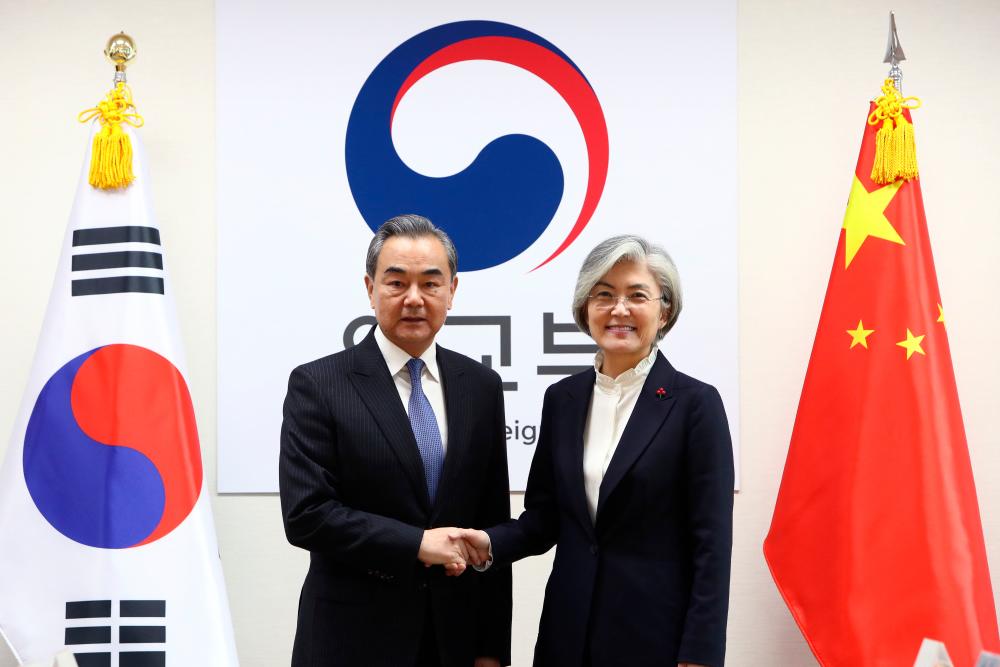SEOUL: South Korea said it would seek China’s help to denuclearise the Korean peninsula as one of Beijing’s most senior diplomats arrived in Seoul on Wednesday to repair ties that soured over the deployment of US anti-missile systems in 2017.
Making his first visit to the South Korean capital in over four years, China’s State Councillor Wang Yi, who also serves as foreign minister, met South Korean Foreign Minister Kang Kyung-wha and was set to meet President Moon Jae-in on Thursday.
South Korea’s Yonhap news agency reported that the agenda for meetings was likely to include plans for a trilateral summit with Japan to be held in China later in December, a possible visit by Chinese President Xi Jinping, as well as the stalled denuclearisation talks with North Korea.
Calling the two countries “close neighbours, friends, and partners”, China’s Wang said they should work together to keep “regional peace and stability”, according to the Yonhap report.
Addressing North Korean issues, Wang said North Korea’s reasonable concerns about its security should be respected and resolved, said Yonhap, citing China’s foreign ministry.
Kang said she looked forward to exchanging ideas to promote economic, environmental, and cultural cooperation, as well as “ways to work together to establish denuclearisation and peace on the Korean peninsula.”
South Korea sees China as instrumental in reviving stalled denuclearisation talks between the United States and North Korea, a longtime ally of Beijing.
Kang and Wang agreed to cooperate in facilitating progress in denuclearization talks between Pyongyang and Washington based on shared views that North Korea’s nuclear program cannot be accepted, peace should be maintained and there must not be war again, a South Korean foreign ministry official told reporters.
Negotiations between North Korea and the United States hit a stalemate after a day-long working-level meeting in October in Stockholm broke down.
North Korean leader Kim Jong Un has set an end-year deadline for Washington to review its approach to talks. US officials downplayed the deadline, calling it artificial.
Wang last visited Seoul for a trilateral meeting, also attended by Japan, in 2015.
A year later a row blew up over the planned siting in South Korea of the US Terminal High Altitude Area Defence (THAAD) system, designed to intercept ballistic missiles.
Beijing said it upset the regional security balance as the system’s powerful radar could penetrate into Chinese territory.
South Korea and the United States went ahead regardless, installing the anti-missile system in 2017, saying it was warranted because of North Korea’s provocations.
When asked about China’s curbs on South Korean products over THAAD, another ministry official said both sides agreed that the two countries’ ties should be “completely normalised.”
North Korea has test fired dozens of missiles since, most recently on the US Thanksgiving holiday last week.
South Korea is also seeking to open additional military hotlines with China after their defence ministers discussed the issue on the sidelines of a conference in Bangkok last month.
China’s Global Times newspaper quoted a Chinese academic saying relations with Seoul had begun to thaw, despite remaining problems of the THAAD deployment. “The ice is melting between the two countries but spring has not yet arrived,“ Renmin University of China associate professor Cheng Xiaohe said. - Reuters













